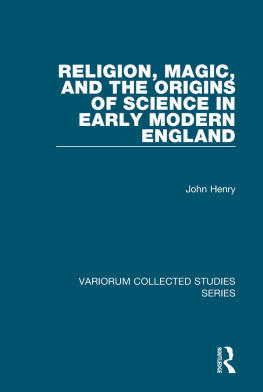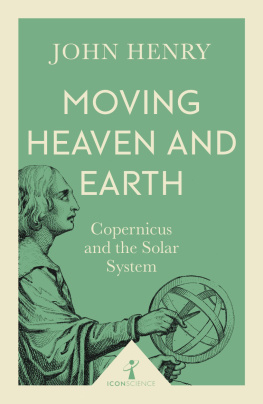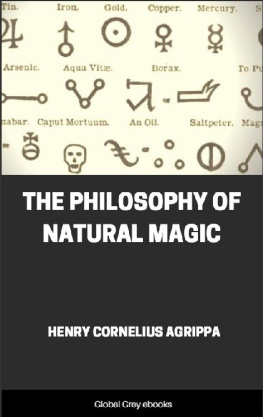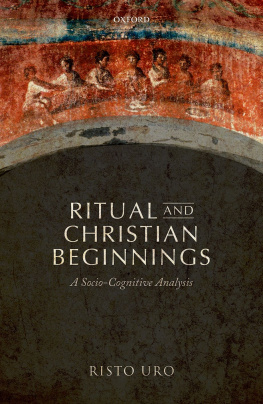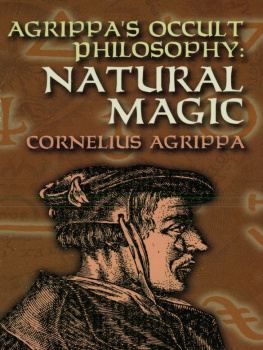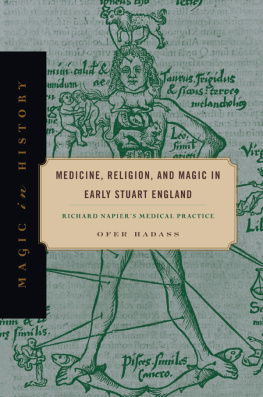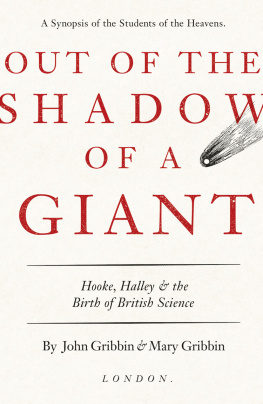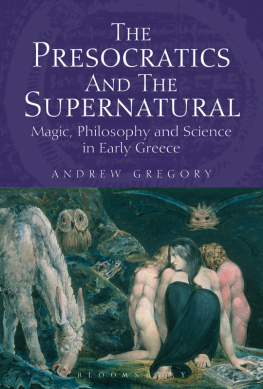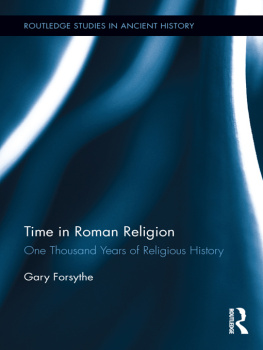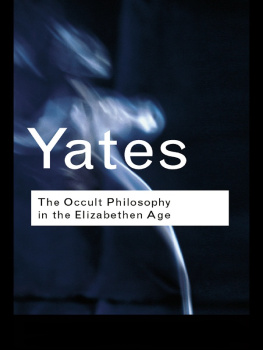
Also in the Variorum Collected Studies Series:
RHODA RAPPAPORT
Studies on Eighteenth-Century Geology
STEPHEN CLUCAS
Magic, Memory and Natural Philosophy in the Sixteenth and Seventeenth Centuries
SONJA BRENTJES
Travellers from Europe in the Ottoman and Safavid Empires, 16th17th Centuries
Seeking, Transforming, Discarding Knowledge
JOHN GASCOIGNEM
Science, Philosophy and Religion in the Age of the Enlightenment British and Global Contexts
KENNETH L. TAYLOR
The Earth Sciences in the Enlightenment Studies on the Early Development of Geology
WILLIAM A. WALLACE
Domingo de Soto and the Early Galileo Essays on Intellectual History
W.G.L. RANDLES
Geography, Cartography and Nautical Science in the Renaissance The Impact of the Great Discoveries
JOHN GASCOIGNE
Science, Politics and Universities in Europe, 16001800
P.M. HARMAN
After Newton: Essays on Natural Philosophy
WILLIAM A. WALLACE
Galileo, the Jesuits, and the Medieval Aristotle
CHARLES B. SCHMITT
Reappraisals in Renaissance Thought
VARIORUM COLLECTED STUDIES SERIES
______________________
Religion, Magic, and the Origins of Science in Early Modern England
______________________
I dedicate this volume, with love, to my daughter Isla, who was born and grew up while I was working on these studies.
John Henry
_________________
Religion, Magic, and the Origins of Science in Early Modern England
_________________

First published 2012 by Ashgate Publishing
Published 2016 by Routledge
2 Park Square, Milton Park, Abingdon, Oxon OX14 4RN
711 Third Avenue, New York, NY 10017, USA
Routledge is an imprint of the Taylor & Francis Group, an informa business
This edition 2012 by John Henry
John Henry has asserted his moral right under the Copyright, Designs and Patents Act, 1988, to be identified as the author of this work.
All rights reserved. No part of this book may be reprinted or reproduced or utilised in any form or by any electronic, mechanical, or other means, now know or hereafter invented, including photocopying and recording, or in any information storage or retrieval system, without permission in writing from the publishers.
Notice:
Product or corporate names may be trademarks or registered trademarks, and are used only for identification and explanation without intent to infringe.
British Library Cataloguing in Publication Data
Henry, John, 1950
Religion, magic, and the origins of science in early modern England.
(Variorum collected studies series ; CS999)
1. Religion and science England History 16th century. 2. Religion and
science England History 17th century. 3. Physics Religious aspects
Christianity. 4. Science and magic History 16th century. 5. Science and
magic History 17th century. 6. Philosophy and religion England History
16th century. 7. Philosophy and religion England History 17th century.
8. Philosophy and science England History 16th century. 9. Philosophy and
science England History 17th century.
I. Title II. Series
215.3094209031dc23
ISBN 978-1-4094-4458-9
Library of Congress Control Number: 2011944852
ISBN 9781409444589 (hbk)
VARIORUM COLLECTED STUDIES SERIES CS999
CONTENTS
Journal of the History of Ideas 62, 2001
British Journal for the History of Science 15, 1982
History of Science 24, 1986
Nature of Substance
Medical History 31, 1987
The Medical Revolution of the Seventeenth Century, eds R. French and A. Wear. Cambridge: Cambridge University Press, 1989
Henry More (16141687): Tercentenary Studies, ed S. Hutton. Dordrecht: Kluwer Academic Publishers, 1990
Robert Boyle Reconsidered, ed M. Hunter. Cambridge: Cambridge University Press, 1994
Robert Hooke: New Studies, eds M. Hunter and S. Schaffer. Woodbridge: The Boydell Press, 1989
The Books of Nature and Scripture: Recent Essays on Natural Philosophy, Theology, and Biblical Criticism in the Netherlands of Spinozas Time and the British Isles of Newtons Time, eds J.E. Force and R.H. Popkin. Dordrecht: Kluwer Academic Publishers, 1994
History of Science 46, 2008
This volume contains xii + 314 pages
PUBLISHERS NOTE
The articles in this volume, as in all others in the Variorum Collected Studies Series, have not been given a new, continuous pagination. In order to avoid confusion, and to facilitate their use where these same studies have been referred to elsewhere, the original pagination has been maintained wherever possible.
Each article has been given a Roman number in order of appearance, as listed in the Contents. This number is repeated on each page and is quoted in the index entries.
Arguments about the relationship between science and religion, and between science and magic have proved to be enduring aspects of the historiography of early modern science. The essays collected here contribute to one or another of these on-going debates; or more often to both, since historical realities seldom divide themselves along the neat lines that historians would wish to impose upon them. At a time when the newly conceived mechanical philosophy seemed to offer the best hope of replacing the increasingly moribund Aristotelianism of the universities, the nature of matter inevitably became a major focus of philosophical concern. By proposing to replace the hylomorphism of scholasticism with atomistic or corpuscularist theories, the new philosophers pinned their hopes on explaining all physical phenomena in terms of matter in motion. There were those, such as Galileo, Descartes, and Hobbes, who hoped to confine their physics purely to kinematics so that the motions of bodies, and the interactions arising from their motions, were all that was required to explain any set of circumstances. For many other thinkers, however, especially those with a greater knowledge of and practical expertise in, what we would now call chemical phenomena, a strictly mechanistic kinematics seemed unworkable. This led to an alternative view, in which bodies were invested with active principles which enabled them to interact in ways that could not simply be reduced to their motions.
Broadly speaking, it was the occult nature of these supposed active principles which ensured that the traditions of natural magic came to the fore in numerous versions of the new philosophy. But it is also evident that these attempts to develop new theories about the nature of matter and body mark one of the major aspects of the new sciences which Amos Funkenstein has seen as leading early modern natural philosophers to believe that traditional modes of theologizing had been rendered obsolete. Consequently, Funkenstein has persuasively argued, natural philosophers developed a new and unique approach to matters divine, and began to treat theological issues at length. In most of the articles that follow, therefore, a study of the role of occult qualities and other ideas from the natural magical tradition, leads us simultaneously into a study of the relationship between religion and natural philosophy.
The papers are presented in roughly chronological order with regard to their historical content. We begin with a study of William Gilberts pioneering study of magnetism, widely renowned as one of the first works of natural philosophy to rely heavily on the experimental method, the
Next page
